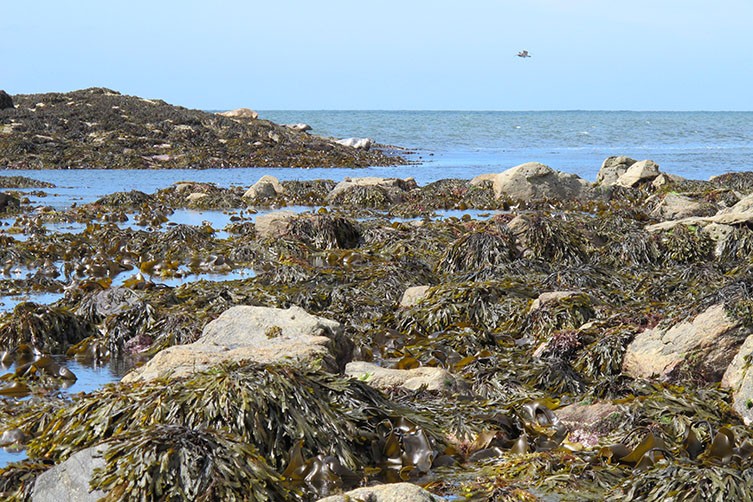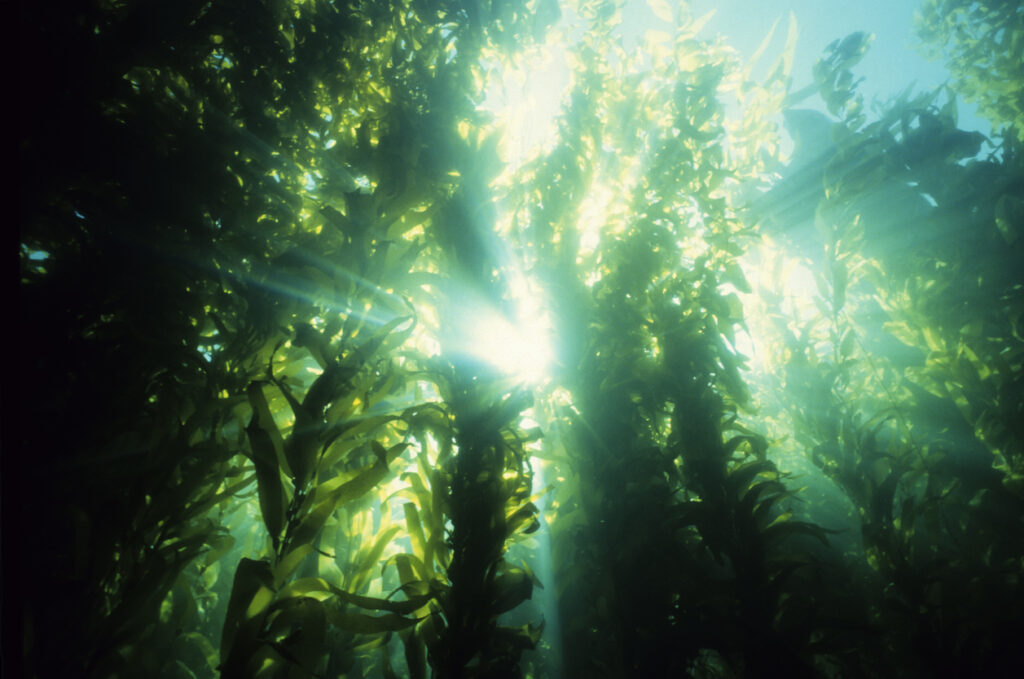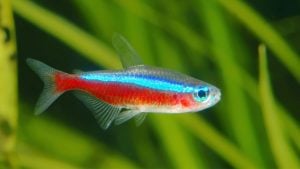
Kelp! I need somebody’s Kelp! Not just anybody’s Kelp!
Is kelp a plant or an animal? Is kelp seaweed? Whatever questions you have about the stuff, the answers to whatever kelp-y queries you have may just surprise you.
It’s found all over the world’s oceans, and it actually does a whole lot for all kinds of different species living there – it can even help us humans too!
We’ll tell you all about what exactly kelp is, where it can be found and how it makes the water a safer place.
What’s the difference between kelp and seaweed?
Kelp and seaweed definitely look similar, and they’re closely related to each other. In fact, some people use the names seaweed and kelp without realising they might be using one word to describe the other.
Seaweed is part of the algae family, and kelp is a subgroup of seaweed – actually it’s the largest. In other words, kelp is algae and algae is kind of like a plant, but not. Still with us? Algae doesn’t have stems, roots, and other things that common plants usually have.
So, what else is interesting about kelp?
Well, for starters, it’s huge. Because it doesn’t have roots, kelp attaches to a rock or other solid structure, usually found on the ocean floor, and grows from there. It’s a fast grower too, shooting upwards as fast as half a metre a day to reach heights of 30 to 80 metres!
And in place of stems, it has stiff, stalk-like growths called stipes which hold them up towards the sunlight. When there are lots of kelp growing in a group, they can form very dense forests which then act as ecosystems where animals and non-living organisms can function together. In other words, kelp provides shelter for many species of fish and crustaceans! Handy, right?
Sea snails, meanwhile, can munch on small particles which get caught up in these kelp forests. Even mammals such as sea otters get in on the action, using the thick kelp to protect their eggs from powerful water currents. They even protect kelp from sea urchins, which can destroy entire kelp forests at a rate of 30 feet (9m) every month. How do they protect the kelp? By eating the sea urchins of course!
Plus, kelp is so fast-growing that kelp isn’t in any danger of being over-harvested by us, either.
What does the kelp lifecycle look like?
One of the fastest growing organisms on earth, sea kelp comes to be in two stages. First, as a kind of fungi called spores, which are released from a parent as either male or female plants that will create the ability to form the second stage: a mature plant.
This mature plant grows from the tip of its blades, which contain apical cells (apical is a fancy term for “at the top”. These apical cells split up, they turn into the tissues of the algae, which results in the kelp growing upwards from the sea floor.
Where can you find kelp?
Kelp can be found all over the world in shallow waters which are cold and rich in nutrients. These waters need to be shallow because kelp need light to grow, so they usually stick to staying in water that isn’t deeper than 131 feet.
These waters also tend to be found in coastal regions, in both temperate regions like Europe, North America and Canada, Russia and parts of Asia, and polar regions. However, in 2007 kelp was discovered in tropical waters near Ecuador! Altogether, kelp forests cover 20% of the world’s coastlines, which is about 570,000 square miles!
Kelp health benefits: how can it help us?
Kelp isn’t just great for the world’s oceans and those living in them, it helps us humans in all kinds of different ways too! Let’s take a look:
-
- Kelp is loaded with loads of different vitamins, including Vitamin K, Vitamin A, Vitamin B-12, calcium, and magnesium. This means kelp can help with eye health, the immune system, and help our hearts, lungs, kidneys, and other organs stay in tip-top condition
-
- Sea kelp is often used in shampoos and conditioners – the iodine inside it has been said to help strengthen weak hair!
-
- That calcium we mentioned earlier, which kelp is rich in, can contribute to stronger bones
-
- Since it contains both anti-oxidant and anti-inflammatory properties, kelp can calm down irritated or sensitive skin and stop inflammation and redness in the future too. This is why you might have seen kelp being used as an ingredient in skin creams more and more lately.
-
- Kelp may also help us live longer! It’s popularly eaten in Japan, and is thought to be one of the reasons why Japanese people have lifespans higher than the average!
-
- It might even help us look younger too. A 2008 study found that the iodine in kelp removes free radicals, which are the chemicals that cause us to age, from human blood cells
-
- We know, we know, algae might not sound very appetising. But as well as these health benefits, it’s delicious to eat too. Dried kelp can be sprinkled onto soups, stews, it can be blended into vegetable juice and raw kelp noodles go great in salads and main dishes
Where can you find kelp at Deep Sea World?
Along with the Lesser Spotted Catshark and the Thornback Ray, you can come and see kelp at our Scottish Seas and Rockpools exhibit!
Fun facts about kelp
What else is there to know about kelp? We’ve collected some more fun and interesting factoids for you below…
-
- Kelp is harvested and used in products like ice cream, cereal, yoghurt, toothpaste and even beer
-
- Kelp can actually stop storms. Kelp forests are so dense that when waves move over them, the kelp creates drag, which slows down the movement of the waves, protecting coastlines from the full effects of potential storms
-
- When strands of kelp come loose, they can clump together on the sea’s surface. This creates a kind of raft for sea creatures to travel on, often for hundreds of miles. This means that new species can venture to new places across the world
Enjoyed learning all about kelp? We hope so! Ready to make a trip to Deep Sea World to see all the amazing animals we have waiting for you? You can find everything from ticket prices and opening times to how to get here at our Visitor Info page.
Type
Plant: Miracle sea plant
What do they eat?
Sunlight
Size
Max 6300cm
Water Type
Salt Water
Where are we?
Worldwide
See Us At
Scottish Seas and Rockpools

